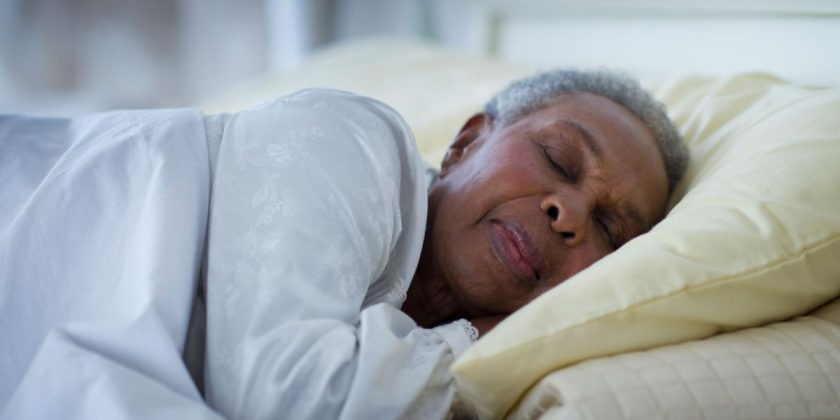Trouble sleeping can be one of the most frustrating and debilitating experiences in modern life. This is because sleep affects the brain, and those suffering with insomnia can experience memory lapses, appetite changes and mood swings.
According to the journal Sleep, around one third of American adults don’t get the sleep they need and it is now estimated that up to 35% of people will suffer from insomnia at some stage of their adult lives.
For many, sleeplessness may prove to be a passing phase, and fixing it can be as simple as changing your sleeping position. But for those who find their sleep disturbed for any longer, it is imperative to address the root cause of what is causing you to lose sleep in the first place.
According to Kate Mikhailm, journalist and author of Teach Yourself to Sleep: An Ex-Insomniac’s Guide, the first point of call is to improve your sleep hygiene. “Too often we’ll be sabotaging any real possibility of getting a good night’s sleep without even realizing it,” she says. “And why? Because we don’t know what we need to do and when we need to do it.”
What is sleep hygiene and why is it important?
‘Sleep hygiene’ is a catch-all term covering all of the good habits you can adopt to help maximize your chances of getting the quality sleep you need. All too often, those experiencing difficulty sleeping don’t pay attention to their sleep hygiene, meaning they fail to create the optimal conditions required for the best possible night’s sleep.
If you want to establish better sleep hygiene then it helps if you have a grasp of what happens to you before, during and after sleep. This way, you can begin to work with your body and brain, instead of against it.
Sleep is regulated by the hypothalamus, a small part of the brain that is controlled by light. It helps to set your own personal body clock and requires the right messaging to be sent to it at the right times of the day for it to work efficiently. “Sleep supporting behavior is much more impactful if you’re aware of what is going on in your mind and body,” explains Mikhail. “For example, the fact that our body thrives on routine and a regular sleep-wake pattern to function smoothly, including when to release certain hormones, increase or decrease body temperature, and when to be alert or tired.”
How to improve your sleep hygiene
Having good sleep hygiene requires establishing the perfect conditions needed to ensure that you give yourself the best chance of an uninterrupted night’s rest. But it’s more than just buying a nice bed and some quality pillows. It’s about creating healthy habits during the day and making a sleep schedule that is both realistic and effective.
Mikhail explains that there are a range of easily adopted measures you can employ to get your sleep back on track:
Load your mornings with daylight
“Our body clocks actually run slightly longer than the 24-hour solar clock, so, ideally, we should reset the master body clock daily,” says Mikhail.
Morning light helps with this by anchoring and strengthening the circadian rhythm. Light sensitive cells in our eyes, meanwhile, relay surrounding light signals to the brain, triggering a physiological chain reaction.
Create a tech-free reward zone
“A key sleep hygiene tip is to ensure your bedroom is a restful environment,” says Mikhail. “If we look at this in terms of habit science and how to dislodge unwanted habits and set up new ones, your bedroom needs to be filled with sleep-promoting cues such as blackout blinds and a comfortable bed, as well as being cleared of sleep-sabotaging cues such as the blue-white lights of phones, tablets and modern tech, which has been proved to negatively affect the natural sleep process.”
Take pre-emptive action
Sleep fragmentation – in other words, waking in the night – can be caused by a number of things, including caffeine, alcohol and high levels of the stress hormone cortisol. Learning your optimum caffeine cut-off point and moderating alcohol, for example, can make your sleep less fragmented and more restorative. “Everything about our day feeds into our sleep, including what and when we consume things,” says Mikhail.
Unwind properly before bed
In order to get a good night’s sleep, we need to move away from being in a state of fight or flight – which can be set off time and time again – as we go about our day. “In order to settle into the opposite state of rest and digest that we need to be in to sleep, it pays to be proactive about relaxing and making good use of science-based stress busters,” says Mikhail. “This includes reframing our emotions and changing your mindset and physiology in favor of sleep.”
Gavin Newsham
A journalist, editor and author with over 25 years experience in the sports, health and fitness sectors, Gavin has written for a wide range of titles, including The Guardian, The Observer and The Sun in the UK, as well as international titles such as The New York Post. He also currently writes health features for the Telegraph newspaper in the UK, specializing in midlife issues.
Source: Read Full Article

